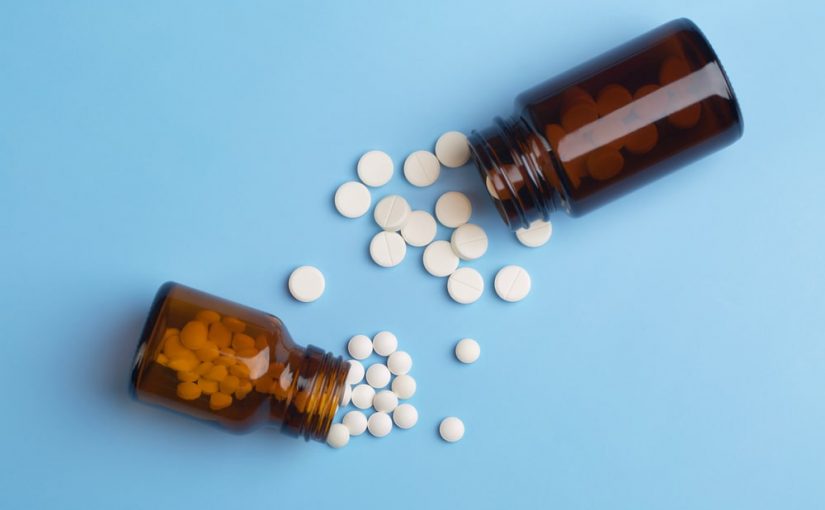Which is better Invokana vs Jardiance?
Diabetes Mellitus is one of the most prevalent medical conditions, affecting millions worldwide. Jardiance and Invokana are medications frequently used for diabetes mellitus. Although the two medications are highly similar, they also have significant differences. People look for an answer: Which is better, Invokana vs Jardiance?
This article might help you to explore the variations between Jardiance and Invokana and help you to find the differences in dosage, side effects, cost and other parameters.
Invokana vs Jardiance:
- Invokana vs Jardiance:
- Invokana vs Jardiance Side Effects:
- Invokana vs Jardiance Dosage:
- Invokana vs Jardiance Cost:
- Invokana vs Jardiance Uses:
- Invokana vs Jardiance Interactions:
- Invokana vs Jardiance: Are they the same?
- Invokana vs Jardiance Warnings:
- Invokana vs Jardiance Alternatives:
- FAQs:
- How long does it take for Jardiance to start working?
- When is the best time to take Jardiance?
- How does Jardiance help the heart?
- What happens if you take Jardiance at night?
- What are the dangers of Invokana?
- How to stop taking Invokana?
- When will Invokana go generic?
- Why is Invokana so expensive?
- How long does it take Invokana to work?
- How do I know if Invokana is working?
- How does Jardiance differ from Invokana?
- Which one is better Invokana vs Jardiance for weight loss?
- Read Also:
- References:
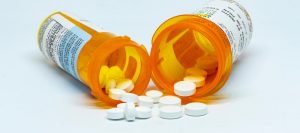
Invokana is one of the most often prescribed SGLT2 inhibitors. Janssen Pharmaceuticals is the manufacturer of it. It has been tried, tested, and found to be beneficial for lowering blood sugar, mainly when used along with a healthy diet and exercise regimen. It should only be administered to those with type 2 diabetes.
Jardiance is a prescription medication intended to lower blood sugar, particularly in those with type 2 diabetes. In addition to lowering blood sugar, it also aids in lowering the risk of cardiovascular death in people with type 2 diabetes and cardiovascular disease.
Invokana vs Jardiance Side Effects:

When comparing the pros and cons of both medications, people do search for an answer for Invokana vs Jardiance side effects. To summarise, genital mycotic infections are the most frequent side effects of both Jardiance and Invokana, affecting both sexes equally but more frequently in females.
Both medications frequently have the side effect of urinary tract infections and may cause nausea, increased urination, and thirst.
Invokana side effects sometimes might also include complaints of generalized weakness or fatigue. This includes exhaustion and a decrease in vigor or strength. Due to the loss of minerals in the bones, Invokana can also increase the likelihood of bone fractures.
Vaginal irritation, constipation, exhaustion, sun sensitivity, hypersensitivity reactions (including skin redness, rash, itching, hives, and swelling), bone fractures, or renal issues are among the side effects of Invokana that are distinct from those of Jardiance.
Dehydration, dizziness, lightheadedness, low blood sugar, upper respiratory tract infection, high cholesterol, joint discomfort, or low blood pressure, diabetes Ketoacidosis are Jardiance side effects distinct from those of Invokana (hypotension).
What are the Most Common Side Effects of Invokana vs Jardiance?
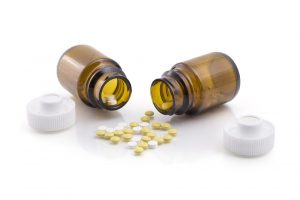
As both of these medications are in the same class of treatments, some of their adverse effects will be similar, which are discussed below. Some of the most common side effects of Invokana and Jardiance are Urinary Tract Infection, Increased urination, yeast Infection, increased cholesterol levels, Nausea, Typical cold, Flu, etc.
An increase in acidic substances (ketones) in the blood, also known as diabetic ketoacidosis, is one of the most potentially dangerous side effects of Invokana and Jardiance. This dangerous illness needs immediate hospitalization since, if untreated, it might result in coma or death.
The following more severe adverse effects are possible with both medications includes:
- Reduced blood pressure
- Ketoacidosis in diabetics
- Kidney issues
- Severe UTIs
- Disease close to the genitals
- Reduced blood sugar (hypoglycemia)
- An allergic response
- Dehydration
Invokana vs Jardiance Dosage:
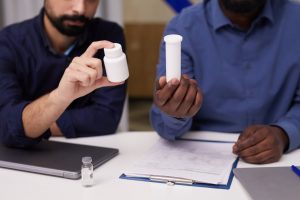
Typically, Invokana dosage is advised as 100mg to be taken before breakfast once daily for patients with type 2 diabetes. The dose can be increased to 300 mg once daily if the patient has normal renal function.
The typical Jardiance dosage advised for individuals with type 2 diabetes is 10 mg taken orally daily in the morning. One oral dose of 25 mg per day is recommended and is also known as the maximal dose. It can be taken with or without food, but it’s best to take it simultaneously daily.
Invokana vs Jardiance Cost:
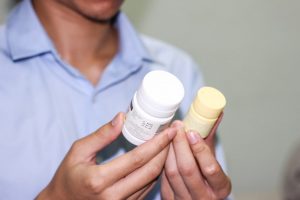
For a 30-day supply, Jardiance costs about $625, and Invokana costs about $600 without insurance. Compared to Invokana, Jardiance may have a higher chance of being covered by insurance. However, the prices vary widely, so it is always suggested to check with your insurance, local pharmacy store, and online pharmacy platforms.
MedsEngage is one of the reliable online international and Canadian pharmacies which offers prescribed brand and generic medicines at a reduced cost. It is the most trusted and reliable source to deliver your medicines with excellent customer support services 24X7. MedsEngage offers medication delivered to your door.
You can save money on Jardiance, a prescription medication that costs $434 to $500, and Invokana, which costs, on average, $450 for 30 counts, 300mg pills via the coupon code available at MedsEngage.
| Medication | Price | Shop |
| Invokana 100mg | $36.33/30 pills | Check Now |
| Jardiance 25mg | $23.33/30 pills | Check Now |
Invokana vs Jardiance Uses:
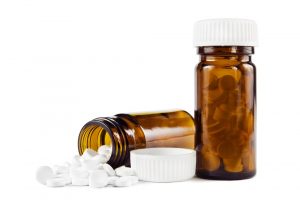
Two well-known prescription medications with brand names, Jardiance and Invokana, are both intended to treat type 2 diabetes. They are members of the SGLT2 (sodium-glucose cotransporter-2) inhibitor medication class. They reduce blood sugar by helping the kidneys excrete blood sugar through urine. Both the medication are also useful in preventing too-low blood sugar (Hypoglycemia)
Jardiance uses include decreases in certain people’s risk of dying from established heart disease. It helps to release excess of salts and sugar fluid from the body via urine which reduces the strains on heart and its muscles which lowers the risk of cardiovascular ailments.
Invokana uses include reduction of the risk of heart attack, stroke, and developing new or worsening renal issues. It is also helpful in type 2 diabetic patients with nephropathy. It lowers the risk of end-stage renal disease, doubling blood creatinine, heart-related death, and hospitalization for heart failure (kidney-related severe complications).
Invokana vs Jardiance Interactions:
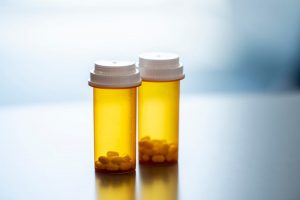
Several additional drugs and Invokana can interact with one another. Additionally, it may interfere with several meals and supplements. Your risk of hypoglycemia and hyperglycemia may rise if you take Invokana and some drugs (low blood sugar level).
You might need to monitor your blood sugar level more frequently if you use these drugs. Additionally, your medication dosage may need to be adjusted by your doctor.
Invokana interactions are possibly seen with the heart medication Lanoxin (digoxin) and medications known as UGT inducers (drugs that are processed using specific enzymes) such as rifampin, phenytoin, phenobarbital, and ritonavir.
Jardiance interactions and Invokana interactions can also be observed with insulin, other diabetic drugs like metformin, and diuretics like Lasix (furosemide) and hydrochlorothiazide. For medical advice, speak with your doctor.
Both the medications show severe drug interactions with Beta-blockers, Calcium channel blockers, ACE inhibitors, corticosteroids, anticonvulsants etc.
Invokana vs Jardiance: Are they the same?

Invokana and Jardiance both are SGLT2 inhibitors, which prevent the kidneys from reabsorbing glucose by blocking the SGLT2 protein in the kidneys. As a result of the sugar being eliminated in the urine, the sugar in the bloodstream will drastically decrease.
Since they belong to the same drug class, they are very similar yet differ in terms of side effects, dosage, drug interactions, warnings, etc.
Both medications have the potential to raise blood ketones, which, if not treated right away, could result in diabetic ketoacidosis, a potentially fatal illness.
Invokana vs Jardiance Warnings:
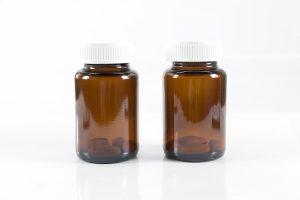
It is well stated that one should not consume any of the medications among both if you are allergic to any of their active components. You should also not consume them if you have type 1 diabetes.
Before taking any of the medications, consult your healthcare doctor in any of the following conditions:
- If you have any liver or kidney issues
- If you have ever experienced pancreas issues like pancreatitis or had pancreas surgery
- If you have a history of urine issues or a urinary tract infection
- If you have diabetes with ketoacidosis (a diabetes complication that can cause rapid weight loss, nausea, and vomiting)
- If you have ever experienced a stroke or a significant cardiac problem
- If you are expecting or intend to become pregnant
Apart from this, amputation of the lower limb and the possibility of bone fracture are additional warnings for Invokana. According to clinical trials, people with known cardiovascular disease and people at risk of developing cardiovascular disease all had a higher incidence of lower-limb amputations if administered with Invokana.
People with renal diseases or low blood pressure and having episodes of low blood sugar (hypoglycemia) should not be recommended with Jardiance.
Invokana vs Jardiance Alternatives:

Both Invokana and Jardiance are SGLT 2 inhibitors. The same medication family also includes Farxiga (Dapagliflozin), which acts as an Invokana alternatives. It inhibits the kidney’s SGLT2 protein, and helps reduce high blood sugar.
Steglatro (ertugliflozin) is also a Jardiance alternative , which works similarly and helps to reduce blood sugar. Farxiga (dapagliflozin), Diabinese (chlorpropamide), Tolinase (tolazamide), Amaryl (glimepiride), Diabeta (glyburide), Symlin (pramlintide) are a few other classes of diabetic medications which can be used to reduce blood sugar level in the body.
FAQs:
How long does it take for Jardiance to start working?
In between 30 and 60 minutes, Jardiance begins to function. It may, however, take a few days to several weeks to control your blood sugar levels when you initially begin taking the medication. If needed, your doctor will assess your progress during treatment and change the Jardiance dosage.
When is the best time to take Jardiance?
Jardiance is a morning-administered, once-daily tablet. It is available as 10 mg and 25 mg oral tablets. It is taken in the morning, once daily, with or without food. The medicine is quickly absorbed by your body, reaching its peak concentration in your system an hour and a half after you take it.
The suggested dose is 10 mg, but it may be increased to 25 mg with your doctor’s approval. Always follow your doctor’s instructions when taking Jardiance.
How does Jardiance help the heart?
Along with diet and exercise, the prescription drug Jardiance is used to reduce blood sugar in persons with type 2 diabetes. Adults with type 2 diabetes with a history of cardiovascular disease lower the risk of cardiovascular death. It facilitates and improves the heart’s ability to pump blood throughout the body.
What happens if you take Jardiance at night?
It is well reported that Jardiance allows blood sugar to be eliminated from the body via urine. Therefore if you take Jardiance at night, you may wake up more frequently to urinate while sleeping. Jardiance may lead you to urinate more frequently, which can cause a decrease in body fluid levels and cause you to become thirsty.
What are the dangers of Invokana?
The risk of lower limb amputation, dehydration, low blood pressure, genital yeast infections in both men and women, severe allergic responses, and renal issues are some of the top side effects and warnings of Invokana (Canagliflozin) treatment.
How to stop taking Invokana?
Unless your doctor advises you to stop taking Invokana, you shouldn’t do it as it can lead to sudden increase in your blood sugar levels. If your doctor discontinues the medication, they might reduce the dose before stopping it completely. Therefore you should not stop taking prescribed medications on your own without consulting your physician.
When will Invokana go generic?
For the treatment of type 2 diabetes mellitus, Invokana, was approved by FDA in 2013. It is the first SGLT2 inhibitor added to diet and exercise to help persons with type 2 diabetes mellitus. Generic medicines become available generally when a patent on a drug expires.
This happens usually 10 to 15 years after the brand-name drug was initially made available. The Invokana patent will expire in July 2024. Hence the generic medications of Invokana can only be accessible in the market after 2030.
Why is Invokana so expensive?
Invokana is a branded medication in the US, not a generic one. It means that until the original manufacturer’s patents expire, no other manufacturer can produce copies of this medication for sale in the United States. The patents preventing the production of generic versions of Invokana expire in July 2024.
Since there isn’t a generic version of Invokana yet, and there probably won’t be for a while, the cost of Invokana is so expensive. We may have to wait another six years before seeing a more moderately priced generic version of Invokana.
How long does it take Invokana to work?
Within a few hours of taking your first dose, Invokana begins to work. When taking Invokana, your blood sugar levels should drop within a week or two. However, it can take a few weeks before your A1C level improves. (The A1C gauges your blood sugar levels over the previous three months.)
How do I know if Invokana is working?
Invokana treats type 2 diabetes patients by preventing specific kidney proteins from reabsorbing sugar into the blood. Your body excretes more sugar in urine as a result of it.
Invokana can be combined with various type 2 diabetic medications. Invokana helps to improve your A1C levels, which is blood sugar over the previous three months. If your body supports Invokana administration, your A1C levels will gradually improve.
How does Jardiance differ from Invokana?
Jardiance and Invokana are anti-diabetes medications used as dietary and exercise supplements to improve glycemic control in persons with type 2 diabetes mellitus.
The major difference between the two medications is A DPP-4 inhibitor drug called Invokana decreases your pancreas’ capacity to make insulin. However, Jardiance is an SGLT-2 inhibitor, it lowers the level of glucose in your urine.
In adult patients with type 2 diabetes mellitus and cardiovascular disease, Jardiance is also recommended to lower the risk of cardiovascular death. Clinical studies on Invokana have associated it with stomach discomfortas a side effect, while studies on Jardiance have linked it to some forms of joint pain and inflammation as a side effect.
Which one is better Invokana vs Jardiance for weight loss?
Both the medications and their intended use to lower the blood sugar level making it easier to lose weight for individuals who can take them. Jardiance has an off-label use to aid in weight loss and reduce blood sugar and heart-related dangers.
In one study, individuals with Type 2 diabetes who took Jardiance for 24 weeks on average lost more than 2% to 3% of their body weight. Similarly, with Invokana, results may vary depending on dosage and whether certain other diabetes medications are used alone or with it.

